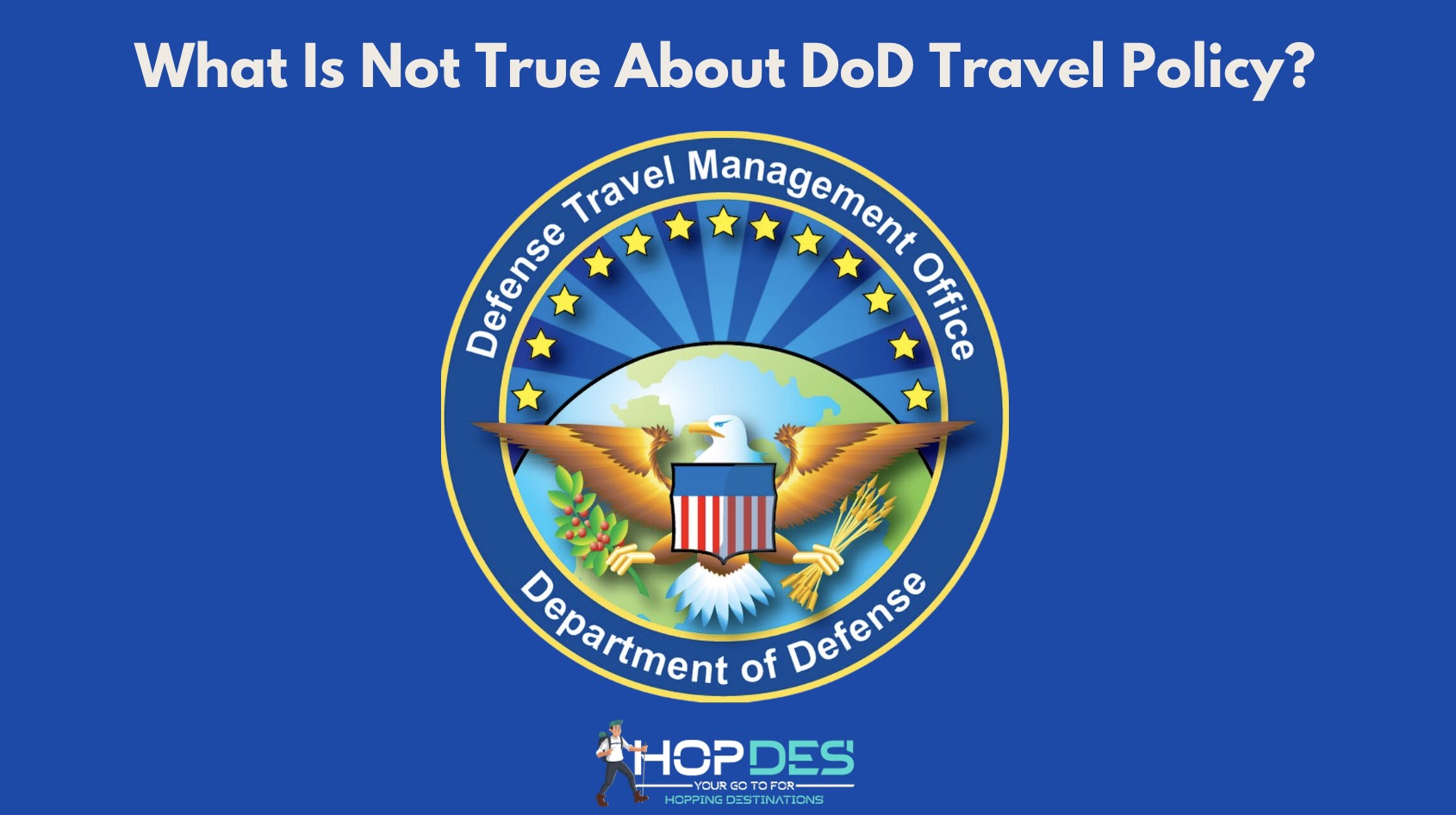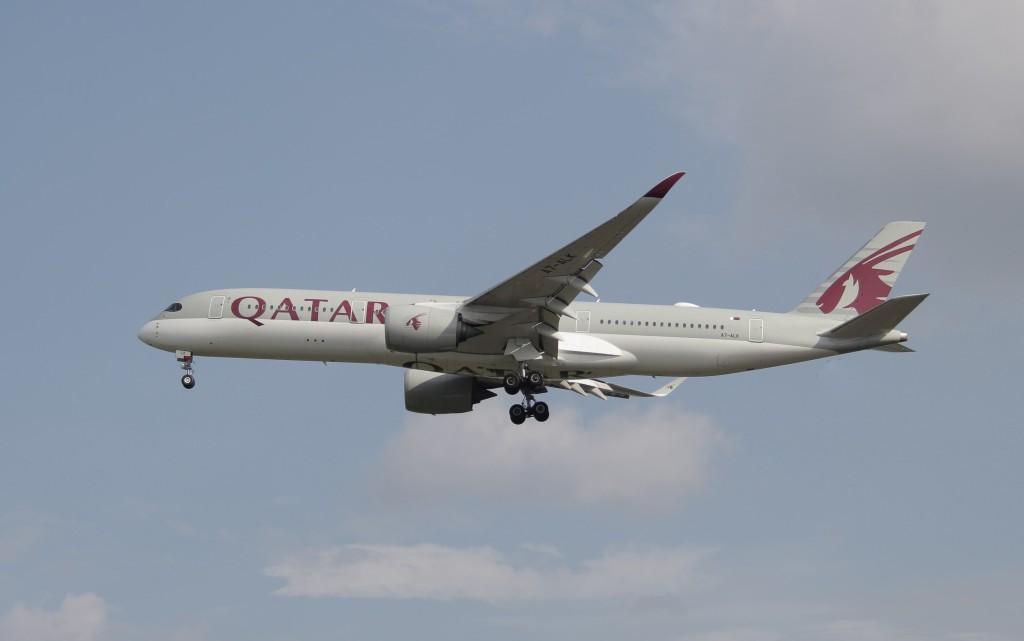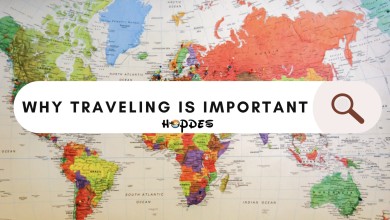
As military personnel and civilian employees of the Department of Defense (DoD), adherence to the DoD travel policy is of paramount importance. This meticulously crafted set of guidelines and regulations ensures smooth and efficient travel operations. However, amid its comprehensive nature, several false notions and misunderstandings have taken root.
In this article, we will debunk the most prevalent myths surrounding the DoD travel policy. Have your knowledge expanded as we uncover the truth behind this often-misunderstood policy!
Check out if you can use your EBT Card In Another State?
About DoD and Travel Policies
To grasp a deeper understanding of the head-on question at hand, it is essential to familiarize oneself with key terms frequently employed in this article:
DoD
As the successor agency to the National Military Establishment, the DoD stands for Department of Defense of the United States Government. Established by the National Security Act Amendments of 1949, its mission hinges on strategically deploying military and civilian personnel, equipment, capabilities, and resources to safeguard our national interests.
Joint Travel Regulations
Joint Travel Regulations (JTR) is an authoritative force that managed policy and law within the DoD. It meticulously sets the stage by establishing travel and transportation allowances for Uniformed Service members, DoD civilian employees, and others who journey at the DoD’s expense.
As a formidable directive, the JTR becomes the compass guiding individuals through the labyrinth of travel and expense regulations. You can find the JTR Document on the Official Website of U.S Department of Defense.
DoD Travel Policy
DoD Travel Policy is a comprehensive framework that outlines the rules and regulations governing government travel. From booking flights and accommodations to reimbursing expenses, it weaves together the essential elements of travel authorization, cost-effective practices, and compliance with regulations.
It aims to ensure that government travel is executed efficiently, effectively, and in harmony with the needs of the DoD and its employees.
What is Not True About DoD Travel Policy?
Despite the policy’s comprehensive nature, the following misconceptions exist regarding its permissions and limitations:
Unlimited Travel Benefits
One mistaken belief is that DoD employees enjoy unrestricted travel benefits, including unlimited destinations and fully covered expenses. However, it is important to clarify that this is not the case.
The DoD travel policy imposes clear guidelines on employee travel eligibility, specific travel periods, and authorized purposes. All travel must be approved and meet specific criteria, with only authorized travel expenses being covered.
According to Joint Travel Regulations, sub-section “020206. Airplane, Train, Ship, and Bus Transportation“— “A traveler can keep any frequent-flyer points or miles, hotel rewards, or rental car upgrades accumulated during official travel, as long as those promotional items are available to the general public or to a class consisting of all civilian employees or Service members. If a traveler voluntarily gives up a seat on an airplane, then the traveler is responsible for any additional costs incurred, such as additional lodging or meal expenses. Also, a traveler cannot select specific flights or hotels to earn points if it will cost the Government additional money. “
This highlights that the concept of indefinite travel benefits or money is not true!

Suggested Reading: How to Check Out of a Hotel? – The Complete Guide
JTR and Reimbursement
Contrary to the misconception, reimbursement of expenses in official travel does not require each specific item or expense to be explicitly mentioned in the Joint Travel Regulations (JTR). Instead, the JTR offers general guidelines and categories of eligible expenses.
The JTR Clearly highlights this policy under sections “020207. Reimbursement for Commercial Transportation” and “020208. Reimbursement for Government Transportation”.

For instance, if you have lodging expenses during your official travel, the JTR will cover reasonable lodging costs within specified limits, even if it doesn’t list every individual hotel or accommodation option explicitly. The focus is on adhering to the broader guidelines rather than exhaustive itemization.
Restricted Air Travel
One prevailing misconception surrounding the DoD travel policy suggests that DoD employees are prohibited from traveling on commercial airlines. However, this notion couldn’t be further from the truth. It is essential to clarify that DoD employees have the freedom to select any commercial airline for their travel needs, as long as the chosen airline is approved by the government for official travel.

Related: Flying for the First Time in Emirates Business Class?
Need of Pre-Approval for Reimbursement
One more misunderstanding about the DoD travel policy is the belief that every travel must receive pre-approval from the DoD to qualify for reimbursement.
Pre-approval may be necessary for specific travel types like international travel, travel to high-risk destinations, classified information-related travel, or travel exceeding duration or cost thresholds. However, it is not universally required for local or domestic travel within specified limits or routine business travel within established guidelines.
It is worth-noting, however, that pre-approval for all sorts of trips is required. JTR regulates this policy under section “010202. Requirement to Travel”. This states that “Approval of a travel order or authorization, by the AO, certifies that travel is required and that other means are not sufficient to accomplish the mission. Government-funded travel and transportation are used only when officially justified and by the means that meet mission requirements consistent with good management”
Personal Credit Card Usage Is Prohibited
Amidst the intricacies of the DoD travel policy, there exists a misconception that personal credit cards are off-limits for DoD employees when it comes to covering business expenses during official travel.
However, this is not true. The DoD travel policy does allow the usage of personal credit cards for business expenses, as long as the expenses are properly documented and submitted for reimbursement according to the established guidelines.

Policy Covers Personal Expenses
Against the backdrop of a widely prevailing misconception, it is important to note that the policy does not extend its financial support to personal trips, such as vacations or visits to family and friends, even if they occur during official government time.
The DoD travel policy strictly focuses on travel expenses directly related to official government business and obligations. However, it is worth noting that miscellaneous expenses are allowed to an extent.
Related: How To Avoid Verizon Travel Pass Charges? Tips and Tricks
Lacks Flexibility
It is often assumed that the DoD travel policy lacks flexibility, leaving no room for any deviations. However, this is not an accurate portrayal. While the policy establishes guidelines and regulations, it does provide flexibility in exceptional circumstances. For instance, in situations of emergency or when compelling reasons arise, individuals may be granted permission to deviate from the standard procedures outlined in the policy.
This flexibility ensures that the policy can adapt to unforeseen or extraordinary situations, allowing for necessary adjustments without compromising the overall integrity of the travel guidelines.
However, according to sub-section “010102. Guiding Principle” — “The guiding principle behind the JTR is to travel responsibly. The word “responsibly” means that the traveler exercises the same care in incurring expenses for Government travel that a prudent person would exercise if traveling at personal expense.”
Personal Vehicles are Prohibited
The idea that using personal vehicles for transportation is completely forbidden by the DoD travel policy is one of the most pervasive misconceptions about it. However, this is not an accurate interpretation.
While the policy discourages the use of personal automobiles generally, it does allow for their use in certain situations. For example, when it turns out to be more affordable than commercial travel options.
According to, JTR, subsection “054402. Transportation at Personal Expense” — “A civilian employee, or a deceased civilian employee’s dependent or heir, authorized mobile home allowances in par. 054401 may transport a mobile home at personal expense and be reimbursed for transportation costs according to this Part. The civilian employee is responsible for making all transportation arrangements for personally procured mobile home transportation”

Environmental Impact Overlooked
This misconception suggests that the DoD travel policy overlooks environmental impact. However, this is not true. The policy explicitly acknowledges the significance of reducing the environmental footprint associated with travel. It actively promotes the utilization of eco-friendly transportation options, such as public transit or carpooling, as a means to mitigate environmental impact.

Policy Applies to Active-Duty Military Employees
Another myth about the DoD Travel Policy that we have encountered is the idea that it only applies to active-duty military personnel. Let’s break it down.
The JTR applies to:
- Uniformed Service Active and Reserve Component members and their dependents. The
- Uniformed Services are the U.S. Army (USA), U.S. Navy (USN), U.S. Air Force (USAF), U.S.
- Marine Corps (USMC), the U.S. Coast Guard (USCG), the National Oceanic and Atmospheric
- Administration (NOAA) and the U.S. Public Health Service (USPHS).
- DoD civilian employees and their dependents.
- Other authorized travelers who use appropriated DoD funding, including new DoD Senior Executive Service appointees and certain Presidential appointees.
- DoD personal services contract employees.
- Civilian marine personnel of Military Sealift Command to the extent provided in NAVSO P833, Civilian Marine Personnel Instruction (CMPI) 4650, and CMPI 4651.
The JTR does not apply to:
- Contractor employees under a DoD contract for anything other than personal services.
- DoD employees appointed under 22 U.S.C. §2385(d).
- DoD civilian employees performing official assignments funded by a non-DoD Agency who are subject to that Agency’s travel and transportation policies.
- Government employees whose salaries are paid with Nonappropriated Funds (NAF) traveling on NAF business.
- Foreign personnel traveling under Security Assistance Management Manual authority
Other Common Misconceptions
The least common misconceptions regarding the DoD travel policy may vary, as misconceptions can vary in prevalence and reach. However, here are four examples of lesser-known misconceptions that may arise:
- Travel Insurance Provider Selection: DoD travel policy does not mandate the purchase of travel insurance from a specific provider. Officers or employees have the autonomy to choose any travel insurance provider that best aligns with their needs and preferences. This grants the freedom to compare various insurance options and select the one that offers the desired coverage and benefits for the trip.
- No Mandated Travel Agency or Website: Officers under the DoD travel policy are not bound by any obligation to use a particular travel agency or website for making travel arrangements. The policy empowers individuals with the freedom to choose any travel agency that aligns with their convenience. Moreover, It also allows officers to make independent decisions based on their independent needs.
- Flexible Airline Choice: The DoD travel policy allows officers or employees the freedom to select any safe and suitable airline for their journey, without any designated or preferred options. This flexibility considers factors like pricing, schedule, and personal preferences, prioritizing passenger safety and individual decision-making.
- Per Diem Rate Limitation: The DoD travel policy allows officers and employees to freely choose their accommodations within the per diem rate. No specific hotel is mandated, giving individuals the flexibility to select lodging options that fall within the maximum daily allowance for hotel expenses set by the policy. However, the JTR advises that , “a DoD traveler must use the Integrated Lodging Program (ILP) facilities if available”. Nonetheless, there is no hard-and-fast applicability on this rule.
Conclusion
Many people had concerns associated with the DoD travel policy. In our guide we extensively covered different aspects of DoD travel policy and what are the most popular misconceptions surrounding it. With that being said, we hope that you are now clear about the DoD travel policy and what is not so true about it.
What is Not True About DoD Travel Policy - FAQs
The DoD travel policy refers to the set of guidelines and regulations established by the U.S. Department of Defense regarding official travel for its personnel. It applies to military service members, civilian employees, and contractors traveling for official business purposes.
The primary objectives of the DoD travel policy include ensuring the effective and efficient use of government funds, promoting the safety and well-being of travelers, and maintaining compliance with legal and regulatory requirements.
The DoD travel policy requires travelers to obtain appropriate approvals before undertaking official travel. The specific procedures may vary depending on the military branch or organizational structure, but typically involve submitting a travel request or authorization through an electronic system. It is reviewed and approved by supervisors or designated authorities.





